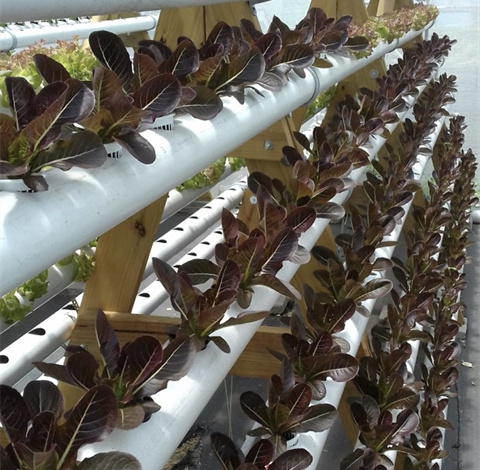
(FAO) – The Food and Agriculture Organization of the United Nations (FAO) and under the Mexico – CARICOM – FAO Initiative Cooperation for Adaptation and Resilience to Climate Change in the Caribbean (Resilient Caribbean Initiative), is currently implementing a Water Energy Food (WEF) Nexus subproject in Antigua and Barbuda, Barbados, Jamaica and St. Kitts and Nevis. The project was launched in February 2021, will run until 2023 and will include solar-powered irrigation alternatives, including aquaponics or hydroponic systems.
The project aims to achieve food security through improved water and energy management and increase the resilience of vulnerable population to climate change, which is growing challenge in the Caribbean. An estimated 70 farmers from across the beneficiary countries will involve the implementation of selected water and energy efficient irrigation, water harvesting and storage systems. At least 10% of beneficiaries will be women farmers.
The WEF project aims to upscale and share lessons and best practices learnt when technological innovations are incorporated at the local, national, and regional levels. In an effort to improve data collection strategies and initiatives in the region, the WEF project will focus on data collection and planning tools for decision-makers and to build capacity in partner Ministries of Agriculture. Priority is given to training and improving capacity of decision makers to select rainwater storage and irrigation systems based on best practices and data collection as an integral part of the project.
In the framework of this year’s virtual Caribbean Week of Agriculture (CWA), the FAO hosted a two-hour webinar on the Water-Energy-Food Nexus in the Caribbean. The objective was to understand common challenges on the ground, share lessons learnt and stimulate a productive exchange about novel solutions and innovative technologies between policy makers from the four beneficiary countries, technical experts from Mexico and CWA participants.
Renata Clarke, FAO’s Sub-regional Coordinator for the Caribbean, opened the session by recalling the high vulnerability of Caribbean SIDS to the adverse effects of climate change and their fragility in the face of additional threats such as Covid-19. She stated: “We really need to make history”, stressing the need to break innovative ground and scale-up lessons learnt across the region for water and food-secure island states. The webinar revealed that a lot of work is already being put into piloting novel technologies and their suitability for the Caribbean context.
Meanwhile, Agustín Breña, Hydrology Coordinator at the Mexican Institute of Water Technology (IMTA), presented a brackish water desalination system powered by photovoltaics that IMTA has been developing since 2016. “This independent, decentralized technology is designed for remote communities experiencing seawater intrusion into aquifers. It is affordable, user-friendly and suitable for small-scale operations”, he noted. Water-efficient solutions of this nature were of particular interest to participants already familiar with water shortage challenges, including Glenn Marshall, Senior Agricultural Officer at the Ministry of Agriculture and Food Security of Barbados. He is concerned about the aggravating scarcity of renewable freshwater resources in his country, “We need to find ways to sustainably address the inadequate water availability for agricultural production in Barbados”, Marshall highlighted.
The presenters agreed that such knowledge exchange and capacity building must continue. Shaun Baugh, Programme Manager for Agricultural and Agro-Industrial Development at the CARICOM Secretariat, echoed this message in his introductory remarks, “South-South cooperation is critical. It emphasizes partnership, inclusiveness and promotes innovation, which is a direct response to the needs of our member countries.”
The WEF Nexus project will assist farmers in increasing their crop yields and enable them to earn more income while improving their quality of life.




